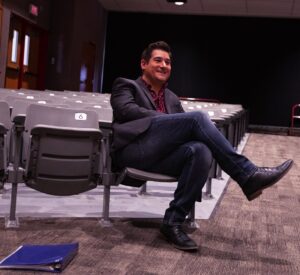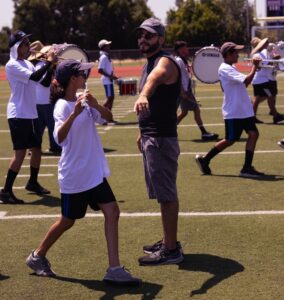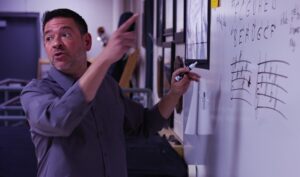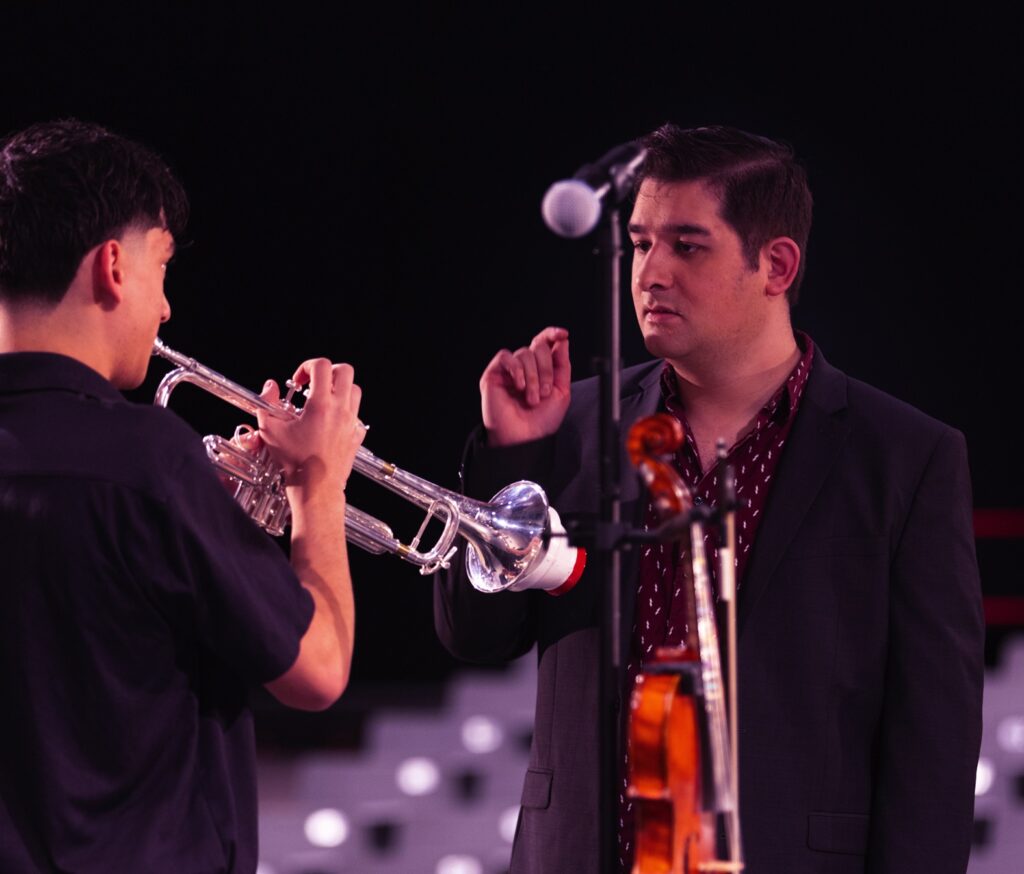8 Hard Realities of Teaching
If you’ve encountered these challenging teaching situations, don’t be discouraged. Instead, look at them through a positive lens!
I speak to various school districts and at a number of MEAs, and I often end my presentations with what I call the “hard realities of teaching.” Most of my points usually resonate with other music teachers and even administrators. Of course, there is also a positive flipside to each of these hard realities. After all, we must work with what we have!
See if you can relate to any of these teaching situations.

1. Our Background Can’t Be Used as an Excuse for Progress and Success
Flipside: We have the same capacity to learn and grow, just like everyone else.
It might take longer, but the sooner we stop using school status, budget or student demographics as an excuse, the sooner we can get to work. Yes, some things will be harder or take more time, but it’s just that — hard, not impossible. I teach at a Title I school. I could use every excuse possible or I could do my best to work within my situation.
One of the best assets in music education is the ability to approach challenges with optimism. If we don’t tell our students something is hard, they won’t think it is. We just get it done.
2. No One Will Care as Much as You Do About Where Your Students Are Coming From
Flipside: Once we remove external validation seeking, we can focus on what really matters.
This is a tough one. We either want to protect our students or make everyone else understand how great they are. But if your goal is to prove yourself — to your admin, other teachers, parents or on social media — you’ll always lose, even if you win. It won’t lead to the same kind of fulfillment that comes from having a great rehearsal or achieving that aha moment.

3. A Goal that Your Ensemble Knows it Can Easily Achieve is Not a Good Goal
Flipside: You’ll never lose going after an appropriate challenge.
Give your students goals that push them, such as a new level of repertoire or a public performance that stretches their skills. Let them feel the weight — and the pride — of meeting these goals. If there isn’t enough of a challenge, students will become bored or think that they aren’t capable of more. If it’s too difficult, then we risk discouraging students, so try just slightly out of reach.
4. Your Students Will Test You to See If You’re the Real Deal
Flipside: You are the real deal, and passing these tests will benefit them.
Keep repeating to yourself:
- It’s not personal.
- It’s not personal.
- It is NOT personal.
That kid who enters your room every single day with their hood up and chewing gum? They’re not resisting you — they’re searching for consistency, safety and leadership.
Be calm, cool and collected. Have a script of what you’re going to say so you don’t have to react emotionally. For some kids, it may take months — or even years.

5. You Won’t Love Every Moment in the Classroom — and the Kids Will Know It
Flipside: Groups struggle, but they work together.
This happens almost every year, right before spring break. “All of you — I really enjoy you, and I enjoy this job. But I think we need some time apart,” I say through exaggerated gritted teeth.
The group gets it — families, friends and groups can fight, but they often come back together when it matters.
Model healthy emotional regulation by being honest, calm and in the moment. Help students realize that we don’t always have to get along, but we do have to be respectful and continue working toward our goals.
6. People Don’t Always Know That You Actually Care
Flipside: Find individual ways to show appreciation and gratitude.
“Hi everyone — just a reminder: You started band or orchestra late because you just moved here, you don’t have a great support system at home, and our school is in a sketchy neighborhood. OK — let’s start at measure 17!”
Students don’t need daily reminders of what they lack — they need reminders of their value.
By offering authentic musical experiences, we elevate them to create something greater than themselves. Focus on the student and their potential. Show, tell and don’t assume.

7. People Have Two Responses to Complaining: I Don’t Care or Glad it’s Not Me
Flipside: People will help when you are clear with your requests.
A mentor once told me, “People have two responses to complaining: 1) they don’t care or 2) they’re just glad it’s not happening to them.”
I thought this was pretty dark at the time, but it helped me shift my thinking. Complaining can feel good every once in a while, but it’s often not very useful — especially if it becomes a habit. What really solves problems? Outlining exactly what you need.
Whether you need instruments, time or volunteers, ask directly. Be specific. You’ll be surprised at who shows up.
“I’m overwhelmed and no one helps.” vs. “The band is in need of two parent volunteers to help stuff 40 thank-you notes.”
Which one would you respond better to?
By the way, there’s nothing wrong with a good venting session every once in a while. Just make sure the listener:
- Knows you just want to vent and don’t need a fix.
- Knows you aren’t mad at them.
- Agrees to the vent session.

8. An Ensemble Is a Direct Reflection of Its Director
Flipside: An ensemble is a direct reflection of the director. (Yes, I meant to repeat this.)
Our classroom reflects who we are as the teacher, and this can be a tough pill to swallow — or it can be a great thing. We may not be able to control the schedule or budgets, but we have the ability to set the tone for our students, rehearsals and programs.
It’s easy to feel overwhelmed. There’s always someone with a bigger budget, more support, better facilities or fewer challenges. But here’s the truth: You are not less capable. You are not less worthy. And your students are not less deserving.
__________________________________
In every school I visit, I meet teachers just like you who are doing incredible things with limited time, tight funding and a whole lot of passion. The work you do matters more than you may ever fully see.
These “hard realities” might sting a bit, but they’re not meant to discourage you. They’re reminders that we can lead our students to success, even when things aren’t ideal (and things often aren’t ideal!). So, as you head into rehearsal tomorrow, remember:
- The room reflects you.
- Your students are watching.
- And the music you make — together — is more powerful than any excuse.
Keep going. You’re doing better than you think!















